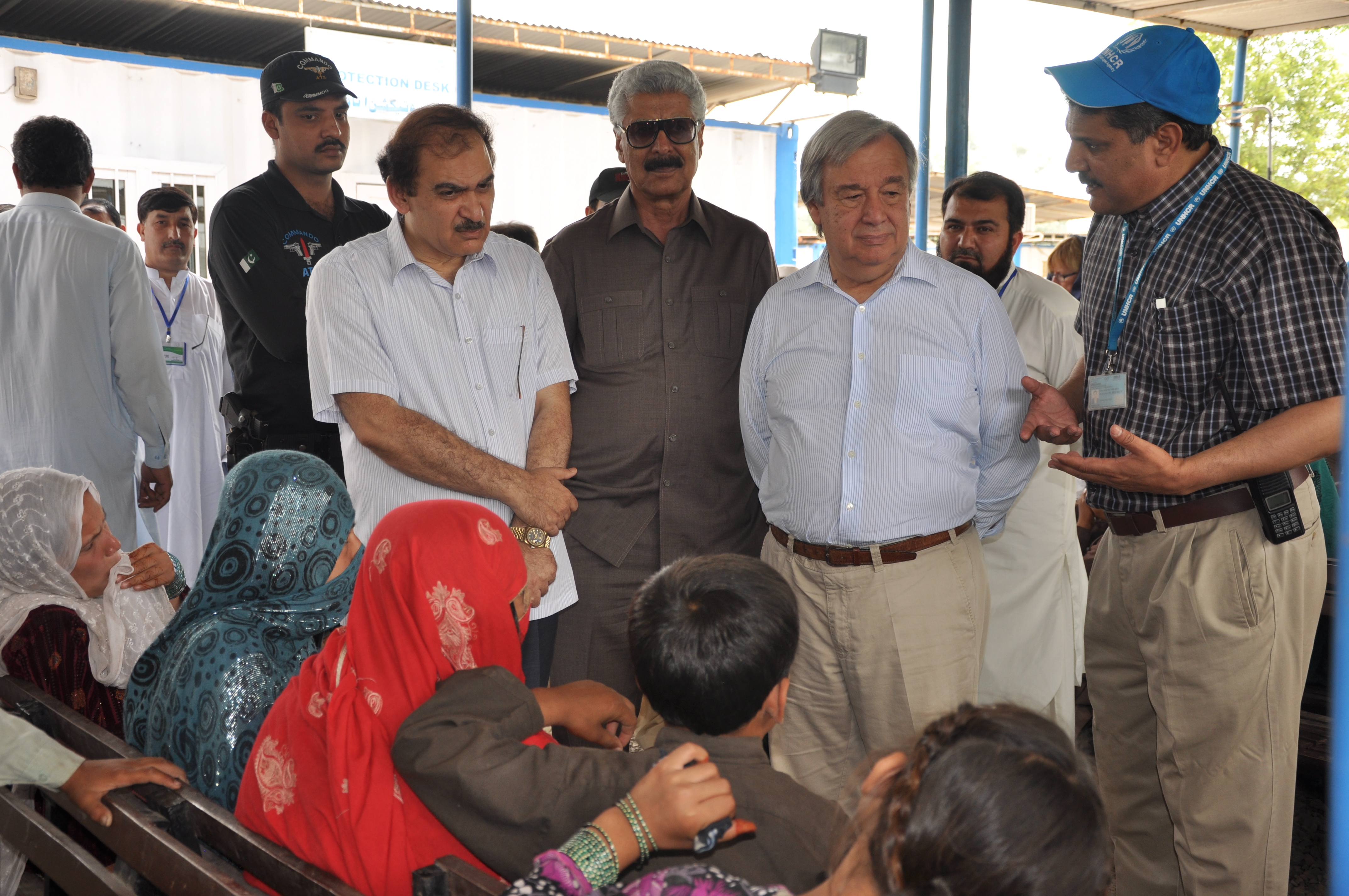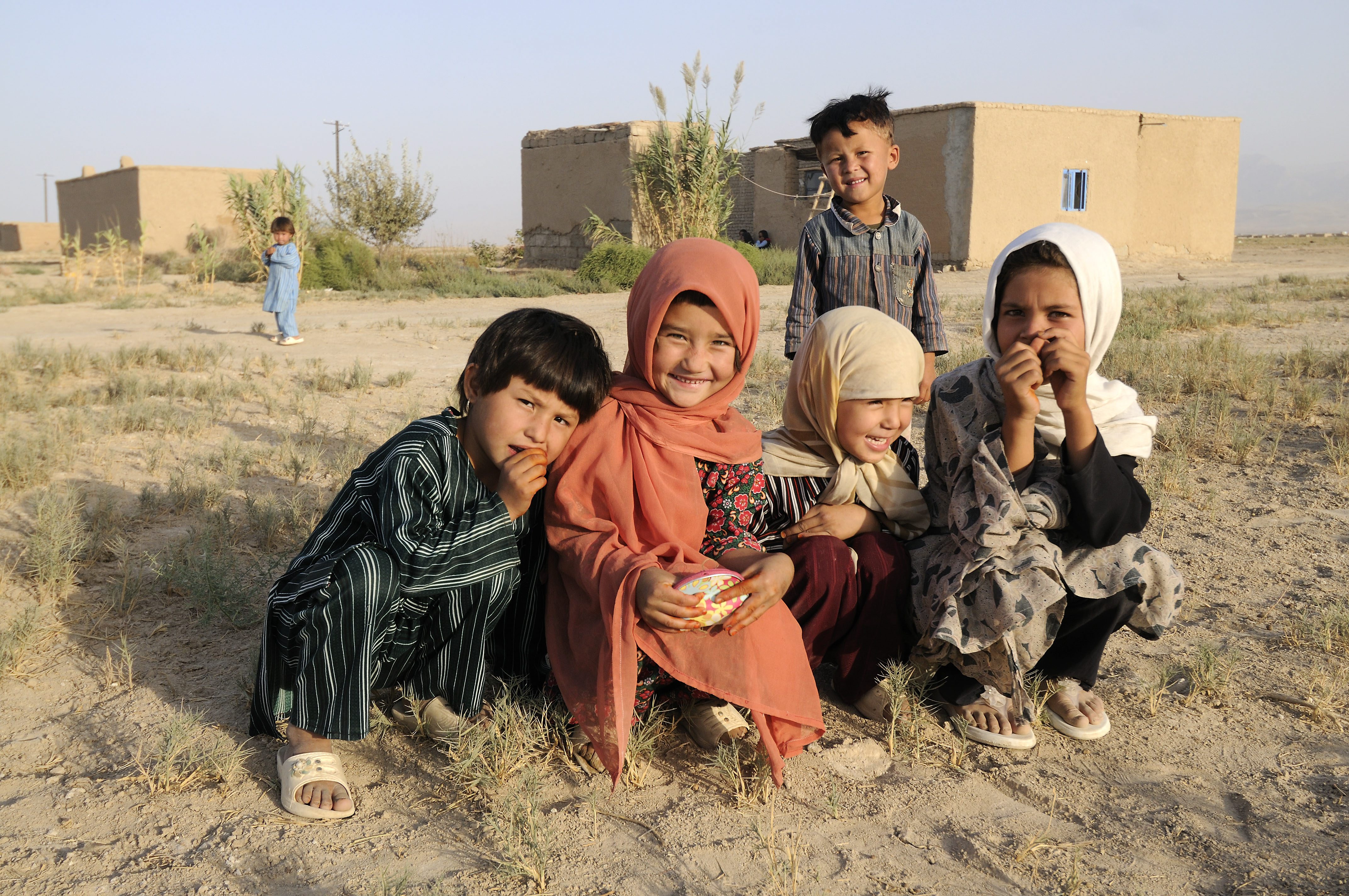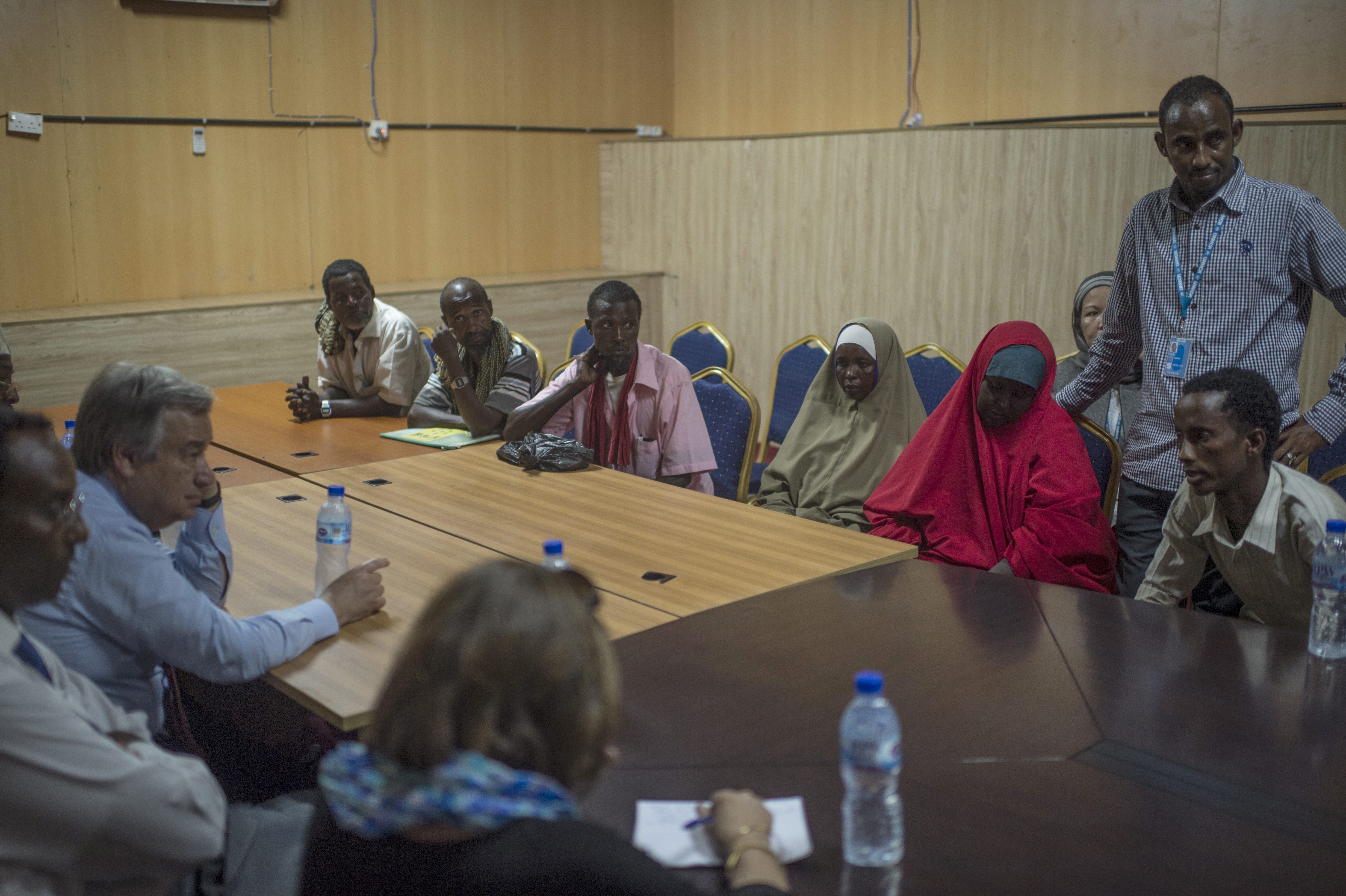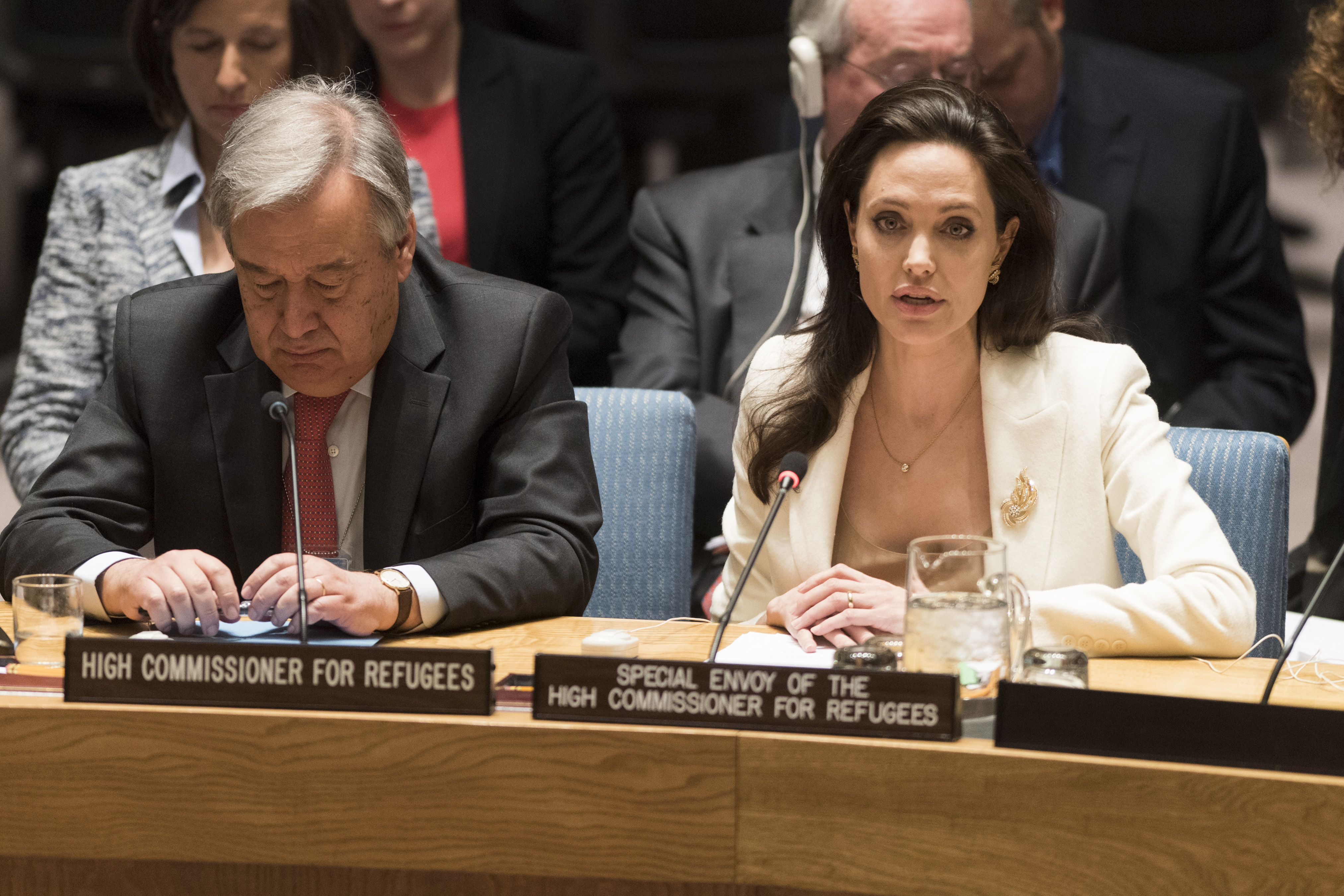Guterres to look at Ecuador's role and needs as refugee host country; IDP issues in Colombia
Guterres to look at Ecuador's role and needs as refugee host country; IDP issues in Colombia

BOGOTA, Colombia, March 9 (UNHCR) - UN High Commissioner for Refugees António Guterres flies to Latin America this weekend to highlight Ecuador's role and needs in hosting up to 250,000 Colombians and to encourage Colombia in the full implementation of legislation aimed at helping millions of people displaced by conflict.
Visiting the two countries for the first time, Guterres will kick off his weeklong trip on Monday in the Ecuadorean capital, Quito. He will meet top government officials before travelling to the country's northern border with Colombia, where he will visit some of the many refugees who live in remote and often impoverished communities.
The High Commissioner will leave Ecuador on Tuesday for Colombia, where he is also scheduled to meet high-ranking officials. Later in the week, he will visit Afro-Colombian and indigenous communities in the west of Colombia. Both minorities have suffered greatly as a result of the armed conflict in that part of the country.
During a conference in Bogota next Friday, Guterres will present the main findings and conclusions of a UNHCR study evaluating the changes in displacement trends and the government's response to the crisis in the past three years.
The High Commissioner in Bogota will also draw attention to the 2007 "Year for the Rights of Displaced People Campaign," which aims to highlight and lobby for the rights of the displaced in Colombia. His arrival coincides with the 10th anniversary of the promulgation of Colombia's law on internally displaced people (IDPs) and Guterres will show support for the legislation and encourage its full implementation in the field.
Colombia adopted pioneering legislation in 1997 to protect the rights of IDPs. The law was praised, particularly for provisions giving IDPs the right to registration and documentation as well as access to services.
Some 3 million people have been uprooted in Colombia as a result of years of internal armed conflict between irregular armed groups and government forces. The humanitarian impact is felt in Colombia and neighbouring countries, notably Ecuador.
An average of between 600 and 700 Colombians per month asked for asylum in Ecuador last year, but the real number of those crossing the border could be higher. Many of the newcomers do not register with the authorities or with UNHCR, often because they lack information about the asylum procedure or are scared to come forward. An estimated 250,000 of them could be in need of international protection inside Ecuador.
"The impact of this humanitarian crisis is little known in the rest of the world and more support is needed from the international community," UNHCR's chief spokesman, Ron Redmond, told journalists in Geneva on Friday. Other UNHCR officials said Guterres hoped his visit would put a spotlight on Ecuador and help solicit international support for the country.
UNHCR has two offices along the Ecuadorian side of the border, one in Lago Agrio to the east, the other one in Ibarra. Both cover vast regions and one of their priorities is to reach out to remote communities that lack access to information and basic humanitarian assistance.
Only two weeks ago, more than 400 Colombians fled across the border and took refuge in Chical, a small and isolated village in northern Ecuador. Staff from the refugee agency coordinated the delivery of emergency aid and informed the newcomers of the options available to them and the right to asylum.
"We have developed good contingency plans with many small communities along the border and this allows us to react fast to such emergencies," said Marta Juárez, UNHCR representative in Ecuador.
She added that while such instances of mass arrivals present logistical difficulties, one of the biggest challenges for UNHCR in the country is that most refugees do not come in large groups but cross the border on their own or with their family only. "This makes it much more difficult for us to know when they arrive and to provide them with the help and information they need," she said.
UNHCR is conducting a nationwide survey this year to find out more about the needs of these thousands of Colombians inside Ecuador who may be of concern to the agency. The survey will also try to identify practical ways to help not just refugees, but also the local communities in which they live.
Preliminary results for the Lago Agrio region will be presented to the High Commissioner during his mission next week. He will also be able to talk to refugees and local communities at first hand about the challenges they face.
The refugee agency also has offices in other countries in the region with a large presence of Colombian refugees, including Venezuela, Panama and Costa Rica.
By Marie-Hélène Verney in Bogota, Colombia







